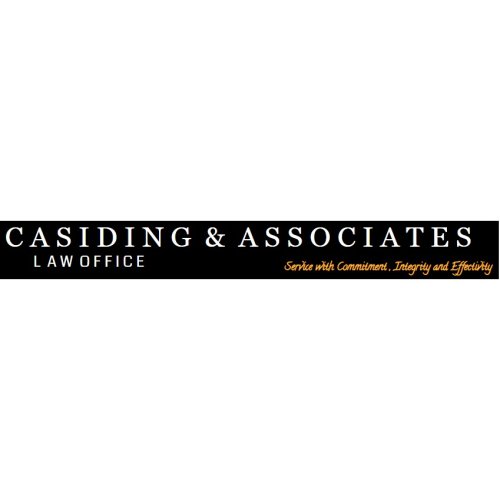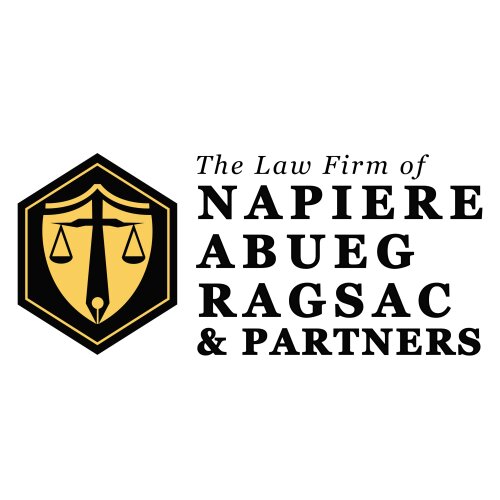Best Licensing Lawyers in Philippines
Share your needs with us, get contacted by law firms.
Free. Takes 2 min.
Or refine your search by selecting a city:
List of the best lawyers in Philippines
About Licensing Law in Philippines
Licensing law in the Philippines governs the permission granted by a licensor to a licensee to conduct a particular activity or engage in a profession that is otherwise regulated by the government. Such permissions can range from professional licenses, business permits, intellectual property rights, to the use of particular technologies or methodologies. The regulatory environment is shaped by various national laws, executive orders, and regulations that aim to protect public interest, ensure fair business practices, and uphold standards across various fields.
Why You May Need a Lawyer
There are several scenarios where you might need legal assistance related to licensing in the Philippines. These include navigating the complex requirements for obtaining a business permit, understanding intellectual property licensing agreements, negotiating terms of a technology transfer, or ensuring compliance with regulatory standards. Legal advice can also be critical in resolving disputes arising out of licensing arrangements or addressing any violations that could potentially lead to penalties.
Local Laws Overview
Key aspects of local laws relevant to licensing in the Philippines involve a variety of regulatory frameworks dependent on the sector. For business licensing, entities must comply with requirements from the Department of Trade and Industry (DTI) or the Securities and Exchange Commission (SEC). Professionals need to adhere to standards set by respective professional regulatory boards. Intellectual property licensing is governed by the Intellectual Property Code of the Philippines, which outlines protocols for patents, trademarks, and copyrights. Environmental and health-related licenses fall under the jurisdiction of agencies such as the Department of Environment and Natural Resources (DENR) and the Department of Health (DOH). Understanding these varying regulations is crucial for compliance and successful licensing applications.
Frequently Asked Questions
What types of licenses are required to start a business in the Philippines?
Starting a business typically requires a business permit from the local government unit, registration with the DTI or SEC, a Barangay clearance, and a Bureau of Internal Revenue (BIR) registration. Specific industries may have additional requirements.
What is the procedure for obtaining a professional license?
Professional licenses are obtained through the Professional Regulation Commission (PRC), which requires passing the appropriate licensure examination and fulfilling any other specific educational or experiential criteria.
How do I register a trademark in the Philippines?
You can register a trademark with the Intellectual Property Office of the Philippines (IPOPHL) by filing the necessary application forms, meeting the requirements, and paying the designated fees.
Can foreign entities hold a business license in the Philippines?
Yes, foreign entities can hold a business license, but they need to comply with the Foreign Investments Act and any restrictions imposed by other sector-specific laws.
What are the penalties for operating without a proper license?
Penalties can include fines, business closure, confiscation of products, and legal action. The severity of the penalty typically reflects the nature and duration of non-compliance.
Do I need a license to practice a profession online?
Yes, if the profession is regulated, you will need the appropriate license regardless of whether the services are provided online or offline.
How can I resolve a dispute over an intellectual property license?
Disputes can often be resolved through negotiation or mediation. Legal adjudication by IPOPHL or court litigation is available if parties cannot reach an agreement.
Are there licensing requirements for importing goods into the Philippines?
Yes, importing goods generally requires registration with the Bureau of Customs and other relevant permits depending on the nature of the goods.
What is a technology transfer license?
It is a legal agreement where the rights to use a particular technology are transferred from the owner to another party. Such agreements require careful legal drafting to ensure that all parties’ rights are protected.
How is licensing for franchises handled in the Philippines?
Franchise agreements typically require registration with the DTI. It is important for franchisors and franchisees to adhere to the Fair Trade Laws to ensure ethical business practices.
Additional Resources
For more information or assistance, you may consider reaching out to the following resources:
- The Department of Trade and Industry (DTI) for business-related licenses.
- The Intellectual Property Office of the Philippines (IPOPHL) for intellectual property concerns.
- The Professional Regulation Commission (PRC) for professional licenses.
- The Securities and Exchange Commission (SEC) for corporate legal entities.
- Local government units for local permits and business license applications.
- Legal aid societies or law firms with expertise in licensing regulations.
Next Steps
If you need legal assistance with licensing, consider taking the following steps:
- Research and identify lawyers or firms with experience in Philippine licensing law. Gathering recommendations or reading reviews can be helpful.
- Prepare all relevant documents and records before consulting with a lawyer to ensure that they have a comprehensive understanding of your situation.
- Schedule an initial consultation to discuss your needs, the lawyer's experience, potential strategies, and fee structures.
- Engage a legal professional to assist in navigating the licensing process, address compliance issues, or resolve disputes.
Lawzana helps you find the best lawyers and law firms in Philippines through a curated and pre-screened list of qualified legal professionals. Our platform offers rankings and detailed profiles of attorneys and law firms, allowing you to compare based on practice areas, including Licensing, experience, and client feedback.
Each profile includes a description of the firm's areas of practice, client reviews, team members and partners, year of establishment, spoken languages, office locations, contact information, social media presence, and any published articles or resources. Most firms on our platform speak English and are experienced in both local and international legal matters.
Get a quote from top-rated law firms in Philippines — quickly, securely, and without unnecessary hassle.
Disclaimer:
The information provided on this page is for general informational purposes only and does not constitute legal advice. While we strive to ensure the accuracy and relevance of the content, legal information may change over time, and interpretations of the law can vary. You should always consult with a qualified legal professional for advice specific to your situation.
We disclaim all liability for actions taken or not taken based on the content of this page. If you believe any information is incorrect or outdated, please contact us, and we will review and update it where appropriate.
Browse licensing law firms by city in Philippines
Refine your search by selecting a city.

















